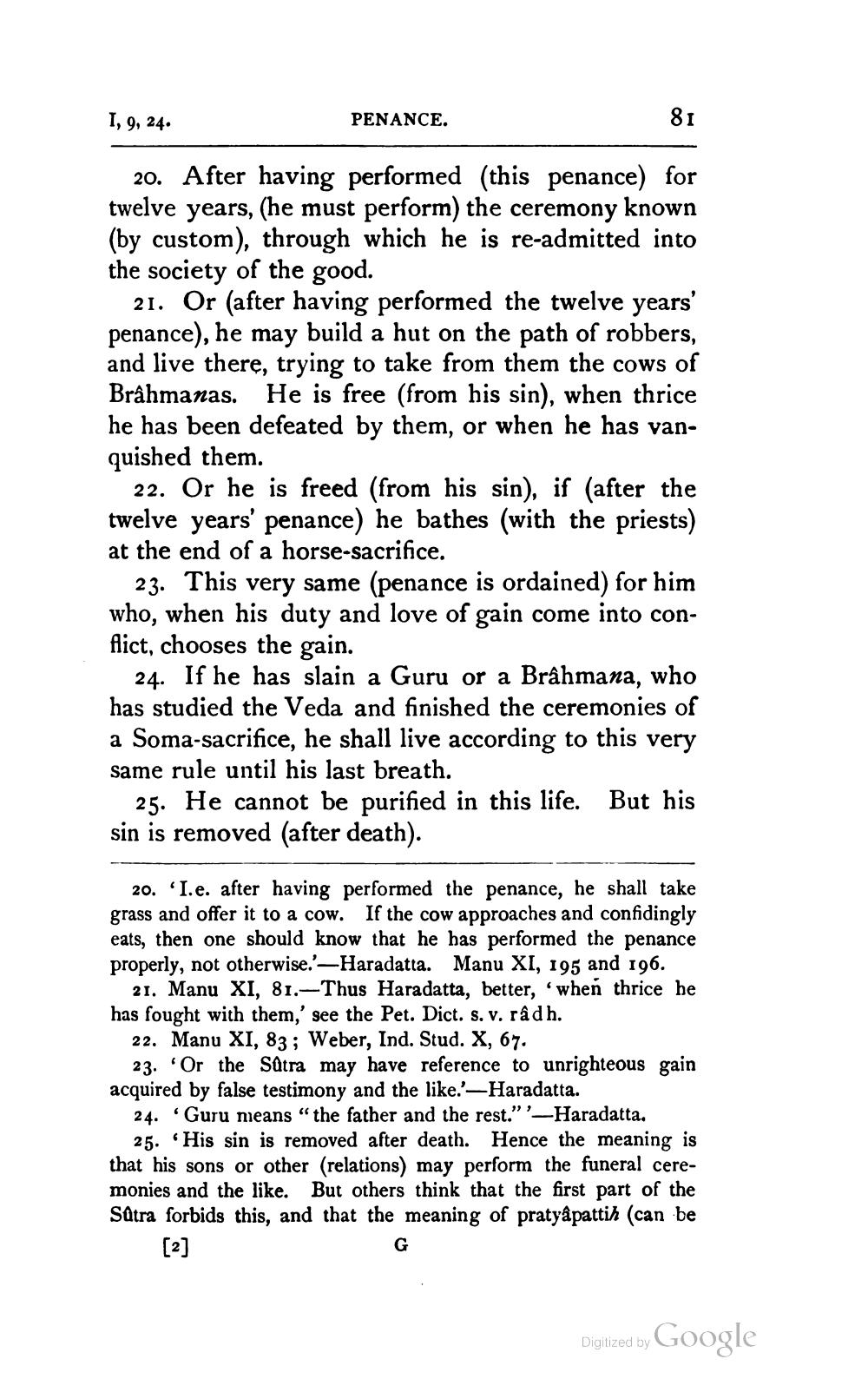________________
PENANCE.
I, 9, 24.
20. After having performed (this penance) for twelve years, (he must perform) the ceremony known (by custom), through which he is re-admitted into the society of the good.
21. Or (after having performed the twelve years' penance), he may build a hut on the path of robbers, and live there, trying to take from them the cows of Brahmanas. He is free (from his sin), when thrice he has been defeated by them, or when he has vanquished them.
22. Or he is freed (from his sin), if (after the twelve years' penance) he bathes (with the priests) at the end of a horse-sacrifice.
81
23. This very same (penance is ordained) for him who, when his duty and love of gain come into conflict, chooses the gain.
24. If he has slain a Guru or a Brâhmana, who has studied the Veda and finished the ceremonies of a Soma-sacrifice, he shall live according to this very same rule until his last breath.
25. He cannot be purified in this life. But his sin is removed (after death).
20. I.e. after having performed the penance, he shall take grass and offer it to a cow. If the cow approaches and confidingly eats, then one should know that he has performed the penance properly, not otherwise.'-Haradatta. Manu XI, 195 and 196.
21. Manu XI, 81.-Thus Haradatta, better, when thrice he has fought with them,' see the Pet. Dict. s. v. râdh.
22. Manu XI, 83; Weber, Ind. Stud. X, 67.
23. Or the Sûtra may have reference to unrighteous gain acquired by false testimony and the like.'-Haradatta.
24. Guru means "the father and the rest." "Haradatta.
25. His sin is removed after death. Hence the meaning is that his sons or other (relations) may perform the funeral ceremonies and the like. But others think that the first part of the Sûtra forbids this, and that the meaning of pratyâpatti (can be
[2]
G
Digitized by Google




